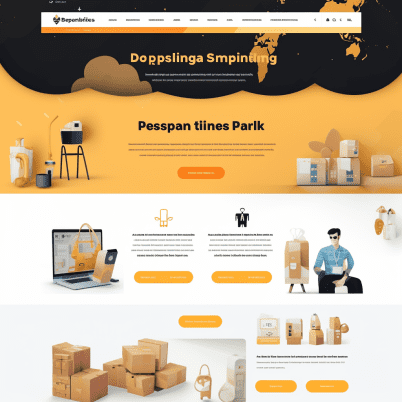In the digital age, having an online presence is crucial for businesses of all sizes for CMS website development services. Whether you’re a small startup or a large enterprise, a well-designed and functional website is your gateway to reaching a global audience. But not everyone has the technical expertise to code a website from scratch. This is where Content Management Systems (CMS) come into play, offering a user-friendly way to create and manage web content. In this comprehensive guide, we’ll explore CMS website development services, their benefits, popular CMS platforms, and how to choose the right CMS for your needs.

1. What is a Content Management System (CMS)?
A Content Management System (CMS) is a software platform that allows users to create, manage, and update digital content on a website without the need for advanced technical knowledge for CMS website development services. With a CMS, you can easily add, edit, or delete text, images, videos, and other elements on your website through a user-friendly interface. CMS platforms have gained immense popularity due to their accessibility and versatility, making them an ideal choice for businesses and individuals looking to establish an online presence.
2. Benefits of Using a CMS for Website Development
a. User-Friendly Interface
One of the most significant advantages of using a CMS is its intuitive user interface CMS website development services. You don’t need to be a web developer or designer to use a CMS effectively. With simple menus and drag-and-drop functionality, you can easily create and update web content without writing a single line of code.
b. Quick and Easy Content Updates
CMS platforms allow you to make real-time updates to your website content about CMS website development services. This agility is crucial for businesses that need to keep their websites current with the latest information, products, or services. Whether you’re adding a blog post, updating product listings, or changing contact details, a CMS simplifies the process.
c. Customization Options
CMS website development services provide a wide range of themes and templates to choose from, enabling you to customize the look and feel of your website to match your brand identity. You can also extend functionality by adding plugins or modules to meet specific requirements, such as e-commerce features or social media integration.
d. SEO-Friendly
Search Engine Optimization (SEO) is essential for driving organic traffic to your CMS website development services website. Most CMS platforms come with built-in SEO tools or offer plugins that help you optimize your content for search engines. This ensures that your website ranks well in search results, increasing its visibility.
e. Multi-User Collaboration
If you have a team responsible for managing your website, CMS website development services platforms offer multi-user capabilities. You can assign different roles and permissions to team members, allowing them to contribute to content creation and management collaboratively.
f. Mobile Responsiveness
With the increasing use of mobile devices, having a responsive website is crucial. Many CMS platforms offer responsive themes and templates, ensuring that your website looks and functions well on smartphones and tablets.
3. Popular CMS Platforms
Now that you understand the benefits of using a CMS website development services, let’s explore some of the most popular CMS platforms available today:
a. WordPress
WordPress is the most widely used CMS website development services platform globally, powering over 40% of all websites on the internet. It’s known for its user-friendly interface, extensive plugin library, and a vast community of developers. WordPress is suitable for blogs, business websites, e-commerce stores, and more.
b. Joomla
Joomla is a versatile CMS website development services platform known for its robustness and flexibility. It’s suitable for creating complex websites, including e-commerce stores, social networking sites, and online magazines. Joomla offers a steep learning curve but provides advanced features for experienced users.
c. Drupal
Drupal is a CMS website development services favored by developers for its scalability and security features. It’s often used for large, enterprise-level websites and web applications. Drupal’s modular architecture allows for extensive customization and integration with third-party systems.
d. Magento
Magento is a specialized CMS website development services platform designed for e-commerce websites. It offers powerful features for managing product catalogs, processing payments, and handling complex e-commerce operations. Magento is a go-to choice for businesses looking to establish a robust online store.
e. Shopify
Shopify is a hosted e-commerce platform that simplifies online store setup and management. While it’s not a traditional CMS website development services, it’s worth mentioning because of its popularity among online retailers. Shopify provides a user-friendly interface and a range of e-commerce-specific features.
4. How to Choose the Right CMS
Selecting the right CMS for your website is a critical decision. Here are some factors to consider when making your choice:
a. Purpose of Your Website
Consider the primary purpose of your website. Is it a blog, an e-commerce store, a portfolio, or a corporate site? Different CMS website development services platforms excel in different areas, so choose one that aligns with your website’s goals.
b. Ease of Use
If you’re new to website development, prioritize ease of use. Look for a CMS website development services with a straightforward interface and a user-friendly content editor. WordPress is an excellent choice for beginners.
c. Scalability
Consider your website’s future growth. Will you need to add more features, pages, or users over time? A CMS website development services like Drupal or Joomla may be a better fit for scalability if you anticipate significant growth.
d. Budget
Some CMS website development services platforms are open-source and free to use, while others require licensing fees or subscription payments. Factor in your budget when selecting a CMS.
e. Support and Community
A strong developer community can be invaluable when you encounter issues or need assistance. Consider the availability of documentation, forums, and support channels for the CMS you choose.
f. SEO Capabilities
If search engine visibility is essential to your website’s success, prioritize CMS platforms with robust SEO tools or plugins. WordPress is well-known for its SEO-friendly features.
g. Mobile Responsiveness
Ensure the CMS you choose offers mobile-responsive themes or templates, as mobile traffic continues to grow.
h. Security
Security is paramount for protecting your website and user data. Choose a CMS with a good track record for security updates and a proactive community.
i. Integration
Consider any third-party systems or tools you’ll need to integrate with your website. Some CMS platforms offer better compatibility with specific integrations.
5. CMS Website Development Services: DIY vs. Professional
Once you’ve selected a CMS, you have two main options for website development: DIY (Do It Yourself) or hiring professional CMS website development services. Each approach has its pros and cons:
a. DIY CMS Website Development
Pros:
- Cost-effective: DIY development is generally more budget-friendly.
- Full control: You have complete control over the design and content of your website.
- Learning opportunity: You can gain valuable skills in website development and design.
Cons:
- Time-consuming: DIY development can be time-intensive, especially if you’re new to website development.
- Limited expertise: You may lack the expertise to handle complex website requirements.
- Quality concerns: Without professional guidance, the final result may not meet industry standards.
b. Professional CMS Website Development Services
Pros:
- Expertise: Professional developers have the skills and experience to create high-quality websites.
- Time-saving: Professionals can build and launch your website more quickly.
- Customization: They can tailor the website to your specific needs and brand.
Cons:
- Higher cost: Hiring professionals can be more expensive than a DIY approach.
- Communication: Effective communication with developers is crucial to ensure your vision is realized.
The choice between DIY and professional development depends on your budget, timeline, technical skills, and the complexity of your website.
6. Cost Considerations
Cost is a significant factor when it comes to CMS website development. Here are some cost considerations to keep in mind:
a. CMS Licensing and Hosting
Some CMS website development services platforms, like WordPress and Joomla, are open-source and free to use. Others, like Magento and Shopify, may require licensing fees or subscription payments. Additionally, you’ll need to budget for web hosting, which can range from affordable shared hosting to more robust solutions like VPS or dedicated servers.
b. Theme or Template Costs
While many CMS website development services platforms offer free themes or templates, you may opt for a premium option to achieve a more unique and polished look for your website. Premium themes and templates typically come with additional features and support.

c. Plugin or Module Expenses
If you need specific functionality beyond what the core CMS website development services offers, you may need to purchase or subscribe to plugins or modules. Be sure to research the costs associated with any necessary extensions.
d. Professional Development Services
If you choose to hire professional developers, their fees will be a significant part of your budget. Development costs can vary widely depending on the complexity of your website and the rates of the development team.
e. Maintenance and Updates
Remember to budget for ongoing maintenance, including security updates, plugin or module updates, and content management. Regular maintenance is essential for the long-term health and performance of your website.
f. Additional Costs
Consider any other expenses related to your website, such as domain registration, SSL certificates for security, and marketing efforts to promote your site.
7. Steps in CMS Website Development
Whether you opt for a DIY approach or professional CMS website development services website development services, the process typically involves several key steps:
a. Planning
– Define Your Objectives: Determine the goals and purpose of your website. Who is your target audience, and what do you want to achieve with your online presence?
– Content Strategy: Plan the type of content you’ll create and the topics you’ll cover. Develop a content calendar to keep your site updated regularly.
– Information Architecture: Organize your website’s structure and navigation to ensure a user-friendly experience.
b. Design
– Choose a Theme or Template: Select a theme or template that aligns with your brand and design preferences. Customize it to suit your needs.
– User Experience (UX) Design: Ensure that your website’s design prioritizes user experience, making it easy for visitors to find what they’re looking for.
– Responsive Design: Make sure your website design is responsive to different screen sizes and devices.
c. Development
– Install and Configure CMS: Set up your chosen CMS on your web hosting server. Configure it according to your requirements.
– Content Creation: Begin creating and adding content to your website. Use the CMS’s content editor to format text, upload images, and embed media.
– Customization: If necessary, customize your website’s functionality using plugins, modules, or custom code.
– Testing: Thoroughly test your website for functionality, compatibility, and performance. Address any issues or bugs.
d. Testing
– User Testing: Conduct user testing to gather feedback and ensure the website is user-friendly.
– Compatibility Testing: Verify that your website works correctly on different web browsers and devices.
– Performance Testing: Check the website’s loading speed and optimize it for fast performance.
– Security Testing: Identify and address any security vulnerabilities to protect your website from potential threats.
e. Launch
– Domain and Hosting Setup: Configure your domain to point to your web hosting server. Ensure that your hosting environment is ready for the public launch.
– Content Migration: If you’re upgrading an existing website, migrate your old content to the new CMS.
– Backup: Create a backup of your website’s current state to ensure data safety.
– Launch Announcement: Announce the launch of your website through social media, email, or other marketing channels.
f. Maintenance
– Regular Updates: Keep your CMS, themes, plugins, and modules up to date to prevent security vulnerabilities.
– Content Updates: Continuously update and refresh your website’s content to keep it relevant and engaging.
– Monitoring: Use website analytics tools to monitor traffic, user behavior, and performance.
– Security: Implement security measures to protect your website from potential threats, such as malware and hacking attempts.
8. Conclusion
In the digital age, having an online presence is essential for businesses and individuals alike. Content Management Systems (CMS) have revolutionized website development, making it accessible to people with varying levels of technical expertise. Whether you choose WordPress, Joomla, Drupal, Magento, Shopify, or another CMS, the key is to align your choice with your website’s goals, budget, and functionality requirements.
Whether you opt for a DIY approach or enlist the help of professional CMS website development services, the process of building and maintaining a website requires careful planning, design, development, testing, and ongoing maintenance. By following best practices and staying updated with the latest trends and technologies, you can create a dynamic and effective online presence that serves your goals and engages your audience.
Remember that your website is a reflection of your brand, and it’s often the first interaction potential customers have with your business. Invest the time and resources necessary to create a website that leaves a lasting impression and drives success in the digital world.
In conclusion, CMS website development services offer a powerful tool for anyone looking to establish their presence on the internet. With the right CMS and a well-thought-out development plan, you can create a website that not only showcases your brand but also helps you achieve your online goals. Whether you’re a small business owner, a blogger, or an e-commerce entrepreneur, the world of CMS website development is at your fingertips.




